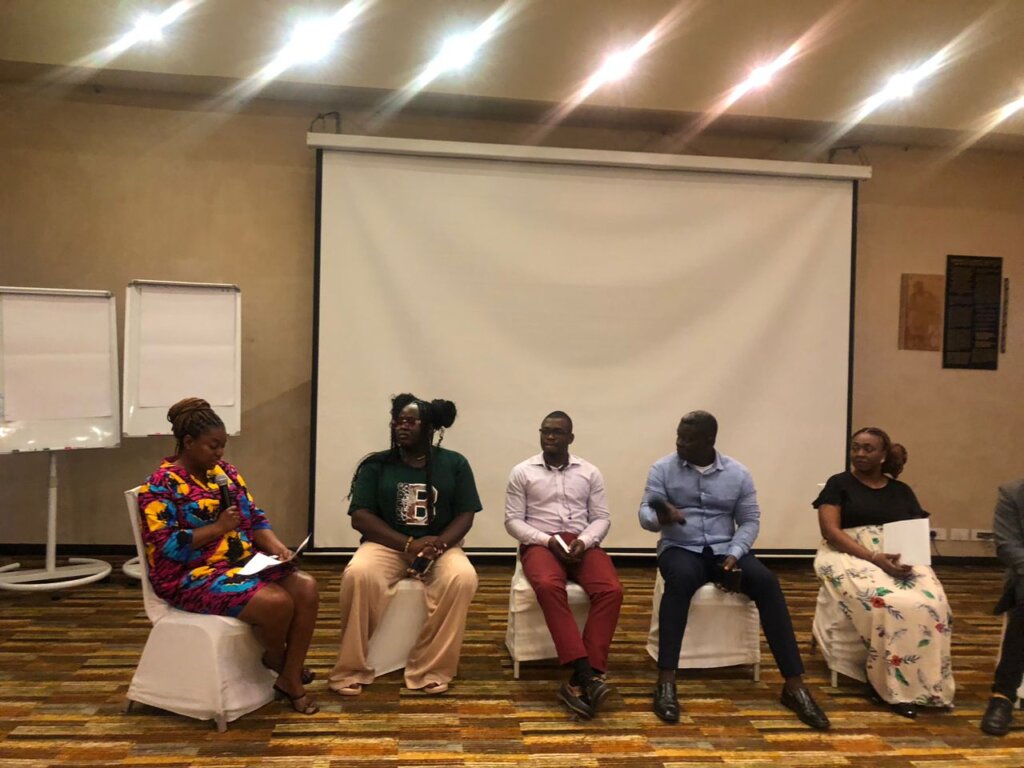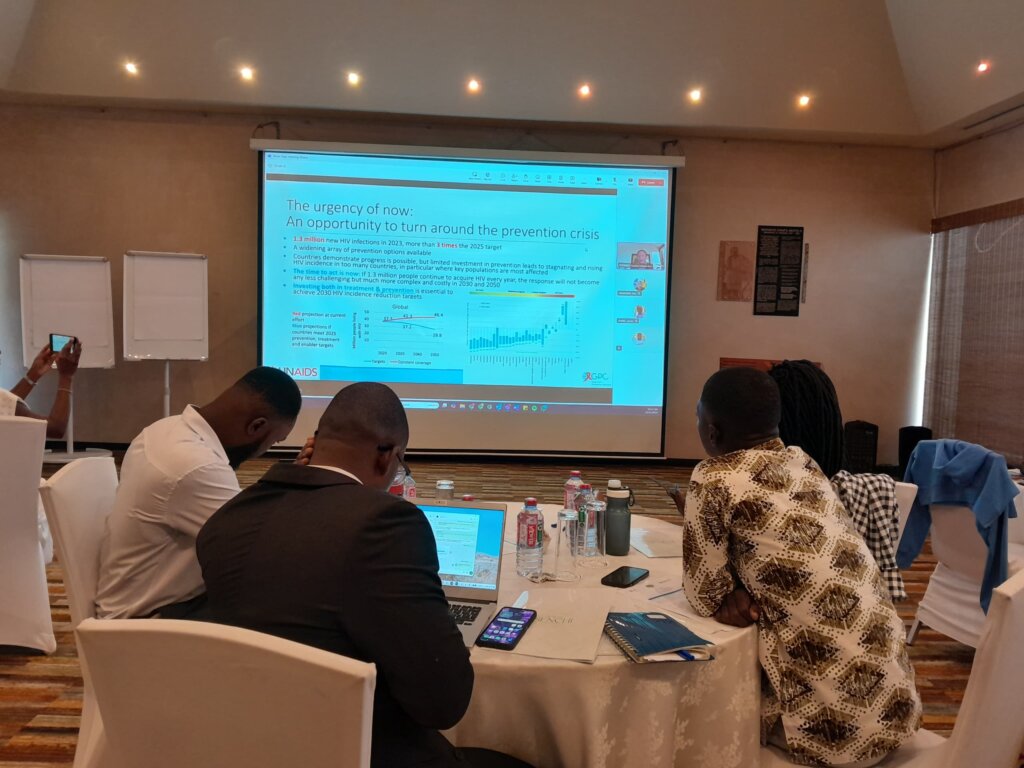From the 21st to 23rd of October, a three-day workshop in Ghana brought together representatives from UNAIDS, PEPFAR, UNFPA, and the National AIDS Control Program (NACP), young people, civil societies and more to evaluate and strengthen Ghana’s HIV Prevention Road Map. This collaborative event aimed to enhance youth engagement, address stigma, and implement innovative approaches to improve HIV prevention and treatment efforts across the country. Participants reviewed the current gaps in Ghana’s strategy, discussed the latest HIV Prevention Baseline Survey findings, and outlined concrete steps to meet the 2025 Global HIV Prevention targets. The session underscored the importance of having a clear, coordinated action plan to reduce infection rates and support affected communities, particularly those who are often overlooked.

The event opened with remarks emphasizing youth involvement, recognizing young people as essential to a sustainable HIV response in Ghana. Representatives from UNAIDS, PEPFAR, and other organizations reiterated the importance of inclusivity, collaboration, and commitment to long-term goals. In a presentation, UNAIDS shared the 2025 Global HIV Prevention Road Map, underscoring the need for intensified prevention efforts to curb infection rates. The presentation highlighted the role of new innovations like long-acting PrEP injections and emphasized the urgency of making prevention tools accessible, particularly for young women, adolescent girls, and marginalized groups who are disproportionately affected by HIV.
PEPFAR shared a comprehensive five-pillar strategy focused on sustaining the HIV response by promoting health equity, engaging communities, and supporting data-driven programming. This approach prioritizes community leadership, empowering local partners to create impactful prevention, testing, and treatment services. During breakout sessions, participants worked on identifying Ghana’s priority actions and milestones, where discussions centred on advancing community-led service delivery, leveraging partnerships, and using real-time data to inform effective, timely interventions. A recurring theme was the importance of reducing stigma, which continues to be a barrier to prevention and treatment access. Participants discussed the negative effects of media narratives and certain laws that criminalize high-risk behaviors, which often reinforce stigma and hinder efforts to create safe, supportive environments for those living with HIV.

Additionally, a panel discussion led by Hope for Future Generations explored innovative HIV prevention strategies, such as expanding access to PrEP, promoting condom use through social media campaigns, and using local influencers to normalize HIV prevention. Participants emphasized that expanding community-driven outreach is essential for building awareness, increasing support, and reaching key populations. They also discussed the need for digital and educational campaigns targeted at young people and high-risk groups to encourage preventive practices and reduce stigma.

The workshop also addressed Ghana’s priorities under the upcoming Global Fund grant cycle, which aims to expand combination prevention packages and enhance harm reduction services, especially for underserved regions and groups. Stakeholders recommended extending the HIV Prevention Road Map from 2025 to 2030 to provide additional time for securing long-term funding and implementing effective, lasting changes. This extension would allow for greater focus on inclusive interventions, such as disability-friendly services and outreach that targets young men, who are often underrepresented in prevention efforts.
The workshop concluded with a shared commitment to building a sustainable HIV prevention strategy that includes youth perspectives, strengthens community partnerships, and promotes equal access to prevention resources. Participants agreed on the need for a unified, action-oriented approach that makes HIV prevention more accessible and effective for all, ensuring that Ghana’s HIV response remains resilient and impactful in the years to come.